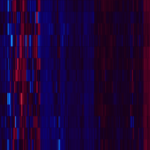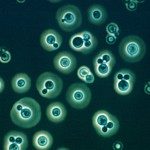Link to Pubmed [PMID] – 35640861
Link to DOI – 10.1016/j.micinf.2022.105016S1286-4579(22)00086-7
Microbes Infect 2022 ; 24(8): 105016
It is becoming increasingly obvious that glycophosphatidylinositol (GPI)-anchored proteins (GAPs) play a prominent role in fungi, a full understanding of GAPs is however lacking especially for the human opportunistic fungus Cryptococcus neoformans. Using online GPI prediction tools, GAPs were identified and subsequently a mutant library for these GAP-encoding genes was developed and a publicly available knock out (KO) mutant library was used. In total, 41 overexpression and 34 KO mutants, representing 47 unique genes, were analyzed. From the analysis of the two libraries, two main gene candidates, a mannoprotein 88 (MP88) (CNAG_00776) and an uncharacterized protein (CNAG_00137) were further investigated by constructing additional independent mutant strains. The CNAG_00776 mutant showed an impaired growth upon plasma membrane stress and significant decreased phagocytosis. The CNAG_00137 mutant showed impaired growth during cell wall stress or increased temperature and significant decreased phagocytosis. By performing a large genetic screen of GAPs in the genome of the human fungal pathogen C. neoformans, we identified two candidate GAP genes involved in C. neoformans/host interaction and stress response. Further research into these two genes could potentially result in new targets for antfungals, treatment strategies or vaccines to manage C. neoformans disease.





